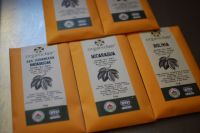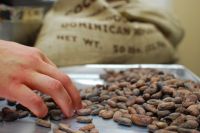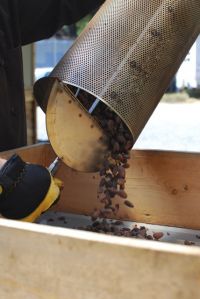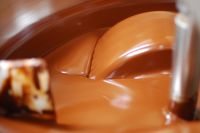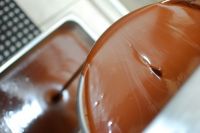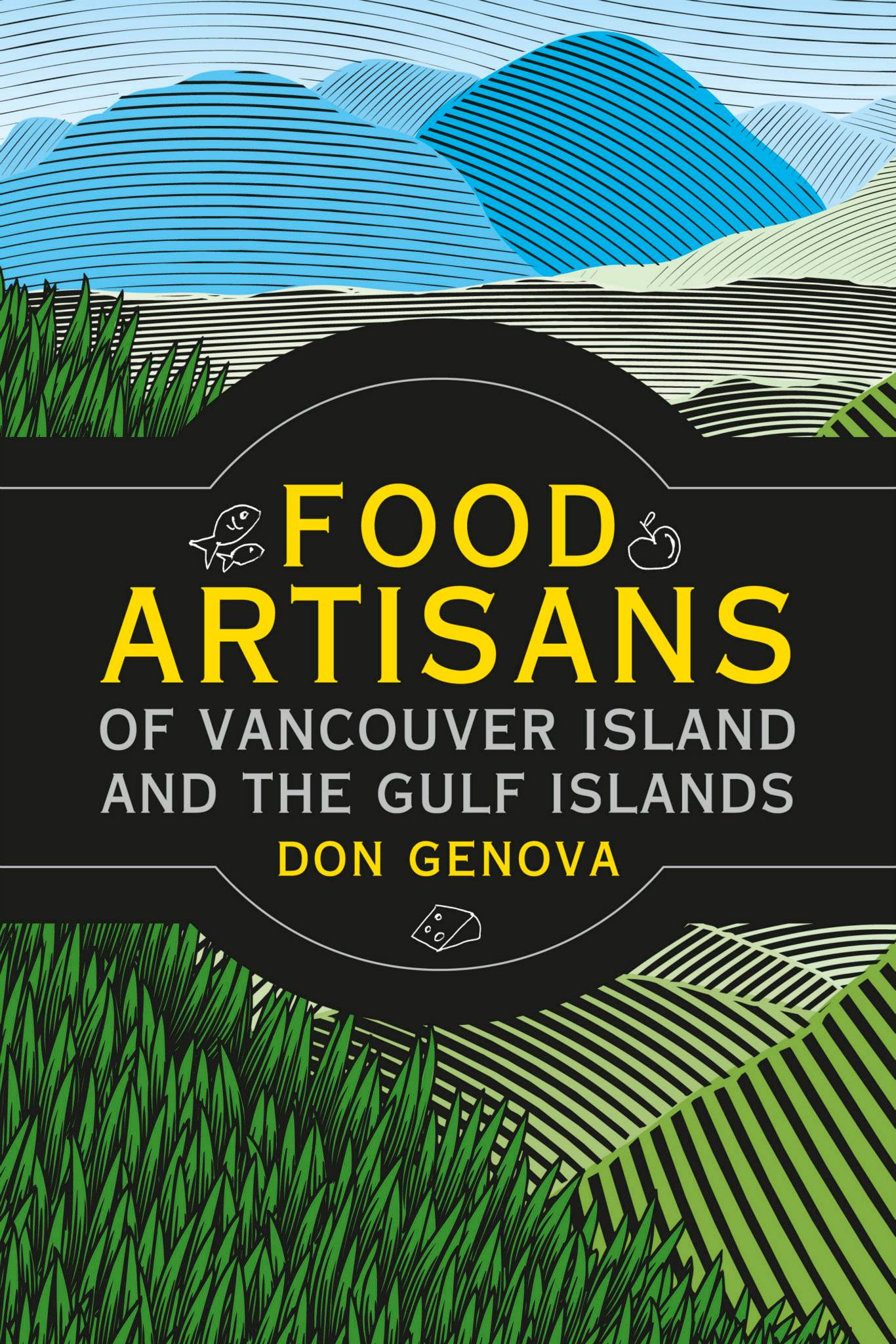Chocolate is a sweet treat that is enjoyed all over the world, but our enjoyment can often come at a high price to the people who grow the source of that good taste, the cacao bean farmers. Now, a Cowichan Valley chocolate company is taking steps to make sure farmers are paid a fair price for their beans, with delicious results.
Compared to most chocolate, bean to bar chocolate has many differences, some of which you can see and smell and taste; the others you need to go behind the scenes to learn. So that’s what I did a little while ago, as I visited the production facility of Organic Fair, a company run by Kent and Marisa Goodwin, that manufactures certified organic chocolate bars, among other products, on a farm in Cobble Hill. While they have been making chocolate bars for a while, using certified organic chocolate purchased through fair trade sources, these bars are different in that they are called bean-to-bar chocolate.
Instead of buying big slabs of chocolate that’s already been made, in most cases by European manufacturers, like Callebaut or Valrhona, and melting it down to add their own ingredients and make it into smaller bars, Kent and Marisa are actually importing the cacao beans directly from farmers around the world, roasting those beans, peeling them and running them through a machine called a melangeur that does a slow grind on these beans for about three days, turning them, with the addition of some sugar, into beautiful dark chocolate. It’s a very hands-on process with many steps. When they get the beans to Organic Fair, they sort through them, remove any bits of rock or twigs that may have got in the sack, and then they carefully roast them in a rotating container.
The roasting is closely timed, and they pull a few beans out so Marisa can pound them a bit in a mortar and pestle and when she did that for me the chocolaty aroma was quite evident in the bean. The beans all have to be cooled and peeled and crushed into nibs and then they are put into a stainless-steel vat with a couple of heavy, granite wheels and a granite base called a melangeur. Kent explains that the nibs may stay in the melangeur for up to three days to get the right texture and flavour, this is where the sugar is also added as well.
In this early stage of manufacturing for Organic Fair, they’ve been sourcing beans from as many different countries and farmers as possible so they can experiment and figure out which ones they want to feature on a regular basis. Today I had guest host Stephen Smart taste a selection from Nicaragua, Bolivia, the Dominican Republic, Ecuador and as far away as Madagascar. With this chocolate, you don’t gobble it down. Sniff first, then just chew a few times and let the chocolate melt on your tongue so you get all the flavour. Each of these bars costs six dollars for 44 grams, which is actually reasonable in the world of small producer, fair trade, certified organic bean to bar chocolate. Marisa explained to me they have tried to keep the price attractive for chocoholics, to let people know what real chocolate tastes like, the different flavour profiles you can get from different beans and different countries, and how it is far superior to most ‘supermarket’ chocolate bars which hardly contain any chocolate at all.
Kent and Marisa have been watching this part of the chocolate industry grow and grow over the past five or six years, they’ve seen other small manufacturers get into the business and they know there is a population out there that takes their chocolate seriously and wants to explore different countries of origin, different plantations, so they think their business model is sound, and with internet mail orders these days, they’re not just restricted to selling to retail stores, but they can ship their bars anywhere. But they’re not just in it as a profit-making venture, at the root of all of their products, there is a great caring for the environment and the people who grow their raw ingredients and this particular style of making chocolate is very exciting for Kent from that perspective:
“One of the most exciting things about this venture is that it gives us a chance to take part in an agricultural product that can prevent destruction of the ecosystem or actually help remedy it. Take Madagascar for example. That country has undergone some fairly radical and destructive deforestation over the past few decades, but if the rain forest can be replanted, with cacao trees in the understory, then when those trees mature they can provide a year-round harvest for farmers there, give them a living and make sure they don’t have to cut the rain forest for other reasons.”
The bean to bar chocolate bars are available on a limited basis at most Organic Fair retailers right now, but there will be a much wider selection in the fall when the Goodwins have chosen their regular bean suppliers and streamline their manufacturing process. If you can’t find the bean to bar chocolate bards where you regularly buy Organic Fair chocolate, try their online shop at this link.

